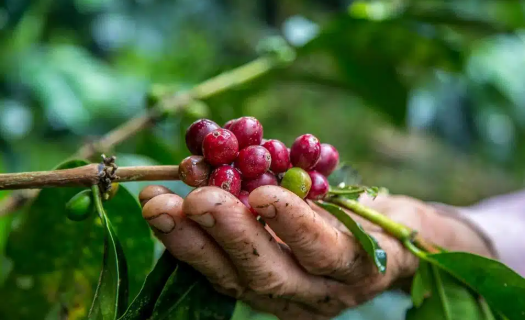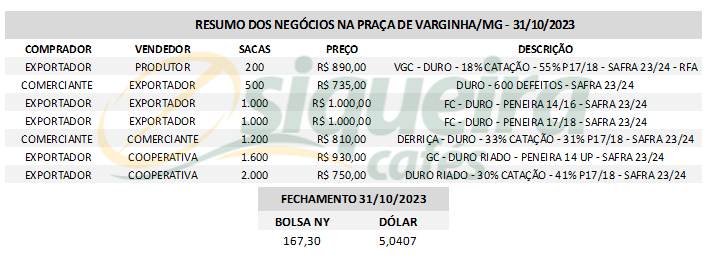Espírito Santo coffee receives special quality classification

Coffee production in Espírito Santo has raised the level of quality, following technological advances with new research and studies carried out in the sector. The newest project carried out with funding from the State Government, through the Espírito Santo Research and Innovation Support Foundation (Fapes), presents excellent results for Espírito Santo coffee.
After two years of hard work, the coffee growers participating in the project are producing specialty coffees, with specimens reaching a score of 88.5 on the scale Specialty Coffee Association (SCA), an international method used in Brazil for the sensory classification of coffee. The evaluated product receives a score from 0 to 100 and the higher the score, the more quality the coffee has.
The development of the new production method was carried out by Agricultural Engineer Rogério Carvalho Guarçoni, from the Capixaba Institute of Research, Technical Assistance and Rural Extension (Incaper). The project received resources of approximately R$500,000 through selection in the Research Project Bank Notice, a partnership between the Secretariat of Agriculture, Supply, Aquaculture and Fisheries (Seag) and Fapes, launched in 2021.
15 coffee processing hubs were established in five municipalities, which received three units: Marechal Floriano, Afonso Cláudio, Venda Nova do Imigrante, Brejetuba and Conceição do Castelo. All studies were carried out with Arabica coffee and can be carried out under the same conditions with conilon.
To reach the current stage of coffee quality, the process went a long way, starting with the choice of 15 participating producers, considering a variety of factors, such as climate, altitude, temperature, air humidity, radiation, type of soil, wind , atmospheric composition and rainfall, among other characteristics that influence the quality of the coffee to provide a greater diversity of sensory profiles.
In addition, environmental licensing was required for all units, technical training for families to produce special and sustainable coffees and the availability of peelers for the assembly of processing units.
It was also necessary to create a plastic cover with a suspended terrace for drying, to change the peeler rotors and to establish a partnership with the city halls of each city to provide backhoe machines for cutting the ravines, where the installation of the processing units.
“This is hard and long work that gives us enormous satisfaction when we see that we are producing coffees with excellent international classification. This is the appreciation of these special coffees. Now, we are achieving our biggest objective, which is the dissemination and transfer of technologies for the production of special and sustainable coffees”, highlighted the project coordinator, Rogério Guarçoni.
He added that the objective of the project, which was to evaluate and disseminate the economic and socio-environmental impacts of the technologies recommended by the research for the production of specialty coffees in Espírito Santo, was fully achieved.
The CEO of Fapes, Denio Arantes, praised that the results obtained with the implementation of the project directly reflect on the State’s economy. “We observe that technological and innovative advances add value to coffee in Espírito Santo. The quality reaches an international level and represents the growth of the coffee sector, motivation of our producers and an increase in the economy of Espírito Santo. All of this is a reflection of the work of the State Government, which finances innovative and high-impact projects in an important agricultural sector”, highlighted Denio Arantes.
The Fapes/Seag Research Project Bank Notice
The Research Project Bank had three phases and, in Phase 1, 35 projects were contracted. An investment of R$10 million for initiatives that assess the socioeconomic and environmental impacts generated from the adoption of technologies and access to public policies for the sustainable development of agriculture, livestock, supply, aquaculture and fishing.
Source: Conexão Safra (by Government Communications Office)

